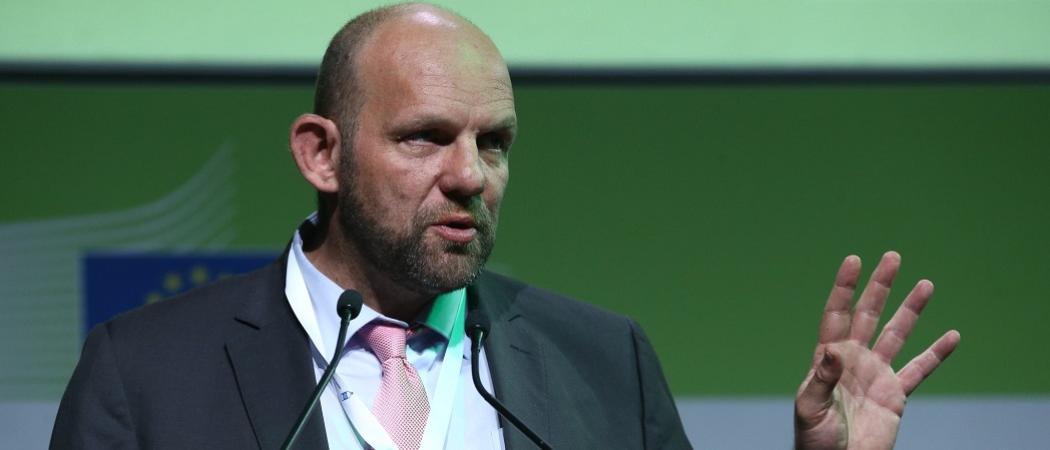A new platform will bring together universities, industry and policymakers to find ways to promote and better regulate innovation, the European Commission announced at the EU Research and Innovation Days meeting

Jean-David Malo, director of the EIC. Photo: EU Environment.
The European Commission is to launch a forum bringing together entrepreneurs, policymakers and academia, to work on improving Europe‘s innovation ecosystem.
The forum, to be run as part of the European Innovation Council (EIC), will enable open discussions between people working in different parts of the chain from research to market, on actions to stimulate innovation, ensure optimal conditions, improve regulation, make better use of existing tools and promote interconnection of innovation clusters, said Jean-David Malo, director of the EIC.
While EIC specialises in funding technology and science-based start-ups, the new platform will address broader issues. As a result, Malo hopes people involved in different aspects of innovation will “start to speak the same language”.
EIC, the EU’s new investment agency, is set to become Europe’s biggest venture investor in the next few years. It ran as a pilot project for the last three years, and under Horizon Europe will be established as a separate entity.
A report published this week shows that in the pilot phase EIC’s budget of €1.3 billion had a marked impact, funding SMEs, which were able to raise a further €5.3 billion as a result.
The exact shape the forum will take is still being discussed. In a session at the EU’s Research and Innovation Days meeting, Malo asked a panel of experts what issues they envision it should address first.
Ireland’s chief scientific adviser, Mark Ferguson, who is chair of the EIC advisory board, said the forum should think about policy “radically and innovatively” rather than taking a traditional policymaking approach. He suggests the forum could help the EU adopt the US Defense Advanced Research Projects Agency model of promoting innovation.
For Gioia Ghezzi, chair of the governing board at the European Institute of Innovation and Technology (EIT), the forum should be a place to tackle “gigantic” policy issues that no company or member state can address alone. For example, if green start-ups need a carbon pricing system to achieve Europe’s green goals faster, the forum should be the place to bring relevant actors together and make it happen.
The first item on the to-do list should be to help small start-ups to work across borders more easily, Ghezzi said. The EU should harmonise its policies to allow start-ups to grow internationally without bureaucratic barriers. “This is not an exciting task, but one that we need to tackle to make innovation thrive,” she said.
Dietmar Harhoff, director of the Max Planck Institute for Innovation and Competition, had a whole to-do list for the forum: replacing different national start-up legal forms with a standard European one; helping entrepreneurs better overcome national borders; and scaling up innovation procurement more effectively.
To make this happen, Harhoff said the forum should consult, “unorthodox innovators, nerds, diamonds in the rough”, who are the “hidden strengths of the European ecosystem.”
Heidi Kakko, partner at the private equity fund BaltCap and an EIC board member, said the forum should be a “provider of services that are needed at that lowest level for local entrepreneurs.” Policymakers should be obliged to listen to what start-ups have to say about the issues they are facing in the market. “They are the ones translating science into action,” she said. Meanwhile, national innovation agencies should act as intermediaries, allowing the grassroots voices of entrepreneurs to be heard by policymakers.
The forum should also be a channel through which successful local or national pilots can be adopted at a European level, said Kakko. In the end, the forum should be a place where innovators and policymakers help each other to replicate success stories.





 A unique international forum for public research organisations and companies to connect their external engagement with strategic interests around their R&D system.
A unique international forum for public research organisations and companies to connect their external engagement with strategic interests around their R&D system.